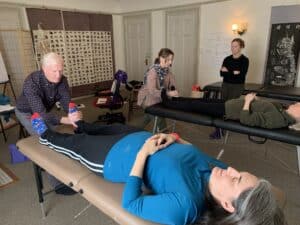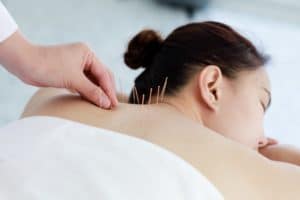Though the adage “Spring forward, Fall back” will soon come into play, there is still time to “spring ahead” on preventing the unpleasant effects of autumn allergies. As the seasons shift, getting the jump on autumn allergies with prevention is much more effective than trying to treat them once they’ve already entrenched themselves in your sinuses. In this blog post, we’ll outline several effective techniques.
Wait…Autumn Allergies?
Many people associate seasonal allergies with spring. Springtime allergies are generally caused by pollen and other outdoor irritants. Unfortunately, autumn allergies in Portland are just as common and can wreak havoc throughout the cold, wet seasons. Spring allergens are mostly found outside, whereas autumn allergens typically manifest inside your home, office, or other contained buildings. These allergens are present year-round, but as we close up our homes against the weather, the effect amplifies.
Mold: the Sneaky Allergen
Mold is a major source of fall allergies and is annoyingly happy to grow and thrive in the Pacific Northwest. Our rainy, damp weather is the perfect breeding ground for dangerous molds that can mess with your sinuses and respiratory system. Common symptoms of mold contamination include congestion, nosebleeds, headaches, trouble breathing and wheezing, and itchy eyes.
In addition to health issues, mold can cause a lot of damage to buildings, due to hidden water damage and improper ventilation. Since mold forms behind walls and in attics or basements, it isn’t always obvious that a building has a mold problem.
Dust Mites and Dander and Cats, Oh My!
Ever wonder where all that house dust comes from? House dust is a major source of allergens, containing dust mite bodies and fecal pellets, as well as dander from furry pets. (By the way, it also contains lots of human dander!) Unfortunately, allergies to dust mites and furry animals are fairly common. Sadly, the list of potential sources of allergens includes cats, dogs, ferrets, rabbits, hamsters… So, have you thought about getting an iguana?
In addition to the cuddly beasts we like to keep around us, there are other allergy-causing pests you will want to keep out of your house, including cockroaches, rats and mice. Dust mites and cockroaches, by the way, thrive on dampness, giving Portland the double whammy of allergens.
Tips for Prevention
The best way to lessen the impact of fall allergens indoors is to take preventable measures right now before things become truly damp. You should:
- Reduce humidity to 50% or less by ensuring proper ventilation, especially in kitchens and bathrooms. In Portland, consider investing in a dehumidifier and an inexpensive hygrometer to measure humidity. (You may be surprised to see it reach 90% during our winter rains.) Make sure your bathroom fan is working well, and use it!
- Repair all leaks & clean up wetness quickly to prevent mold damage. Clean, remove, & sanitize any mold present.
- Use impermeable woven covers on bedding (mattress, box spring and pillows) to reduce exposure to dander and dust mite allergens.
- Vacuum your house and wash bedding frequently, at least weekly. Consider wearing a mask while you clean.
- Use a high-quality HEPA filter on your heating/cooling system, or consider investing in a free-standing unit.
- Repair any holes or openings through which pests may enter. If necessary, set traps or call an exterminator to eliminate insect or rodent problems.
- Eliminate any potential food and water sources for insect and rodent pests.
- Regularly groom your pets. If necessary, keep them out of certain areas of the house, such as the bedroom of a child with allergies. In extreme situations, consider finding a new home for your furry companion.
Treating Autumn Allergies Naturally
Even if you adequately clean and control your space, you may still be plagued by autumn allergy symptoms. After all, you can’t control every building you enter or completely eliminate irritants. You could take over-the-counter (OTC) allergy pills, but we’ve written before about the drawbacks of that method. Instead, we recommend regular acupuncture sessions and the use of whole foods and medicinal herbs.
Acupuncture has been proven an effective treatment for seasonal allergies. It is a dynamo for eliminating energy blockages in the body and relieving irritation and inflammation. Patients who receive regular acupuncture sessions report a reduction in allergy symptom severity year over year.
One of Inner Works Acupuncture’s clients reported, “I recently saw her following a mysterious rash on my neck and hairline. My dermatologist felt it was a topical allergic reaction and prescribed steroids. I knew this was a mask not a solution. After changing all of my personal products to hypoallergenic without relief, I made a call to Liz. After the first session it started clearing up. The noticeable change surprised me!”
Chinese herbal medicine is another form of alternative treatment offered at Inner Works Acupuncture. A customized blend will strengthen your immune system and fortify your constitution.
Preparing Your Body For What is to Come
The best defense against fall allergies to prepare ahead of time. Contact the Portland Inner Works Acupuncture today at (503) 227-2127 to schedule a visit with Dr. Elizabeth Zenger Ph.D., L.Ac. She will build you a personalized treatment plan that balances both internal and external allergy sources and provides the relief you deserve.




